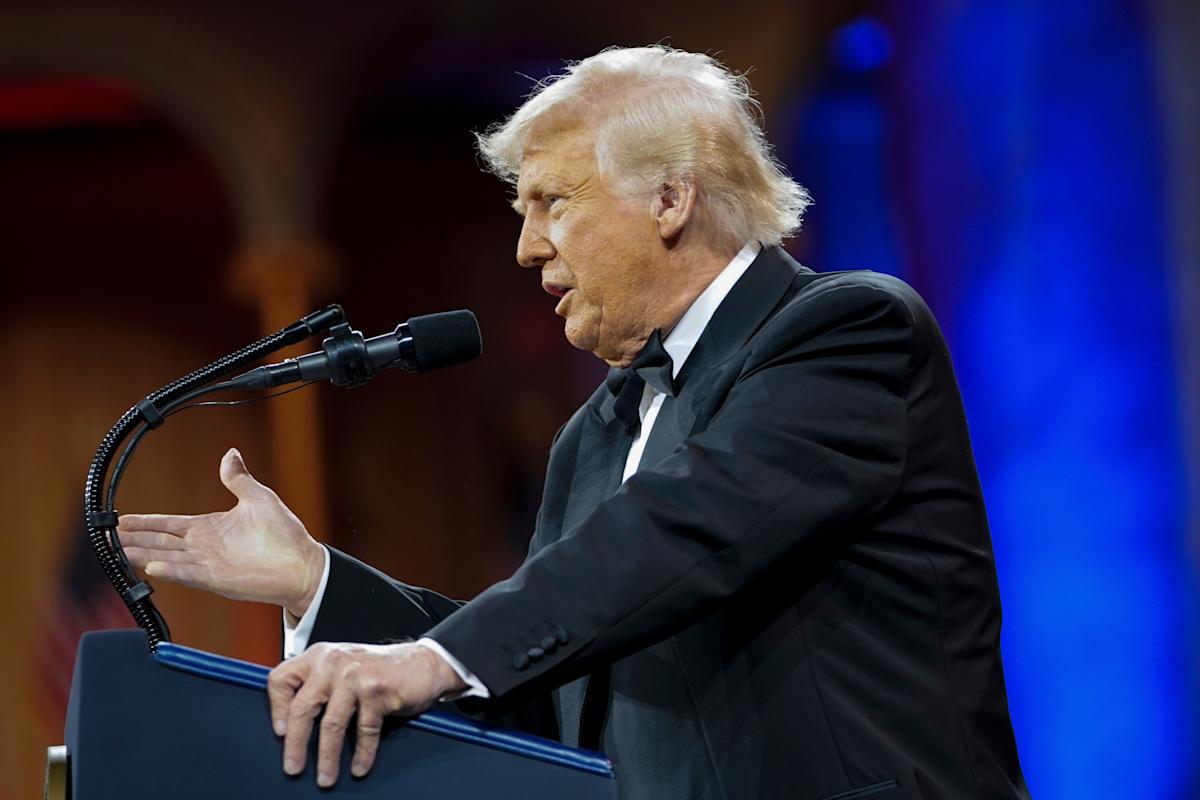Believe it or not, there have, in fact, been other stories in the world this week beside the market roller coaster over President Trump’s trade policies.
Take healthcare. Between major announcements on Medicare Advantage, coming pharmaceutical tariffs, and Dr. Mehmet Oz’s first speech to his troops at the Center for Medicare and Medicaid Services, we’re beginning to get a clearer glimpse of the new White House healthcare agenda.
Here’s a breakdown of the recent news.
Private Medicare plans are getting a windfall
Large health insurers saw their stocks pop earlier this week, after administration officials announced they would boost benchmark payment rates for Medicare Advantage plans by 5.1% this year — the largest such increase in a decade, and more than double the one first proposed by the Biden administration. The bump means carriers should pocket $25 billion in extra revenue, according to CMS.
The Trump administration was widely expected to be more friendly to Medicare Advantage plans, especially after it appointed Dr. Oz, who had a long record of promoting the private plans on his show, to head CMS. The new payments were reportedly finalized without the celebrity doctor’s input — he was only confirmed by the Senate late last week. But they could both boost insurers profits and help them pay for additional benefits that would attract patients.
The bump could also exacerbate concerns about Medicare Advantage overpayments, which were already expected to cost the government well over $1 trillion during the next decade. According to the administration, the benchmark rate was driven higher by updated estimates of Medicare Fee-for-Service costs, which underpin the formula the government uses to compensate private insurers that sell advantage plans. But Jeffries’ analyst David Windley suggested some politics were still at play.
“We maintain the Trump admin had its finger on the scale,” he wrote in a note to clients.
Prescription drug tariffs are coming soon
Trump may have backed down on his staggering round of “reciprocal” tariffs, but the world’s drug makers still have plenty to be nervous about when it comes to trade. On Tuesday, the president said he would impose “major” new import taxes on pharmaceuticals “very shortly.”
“And when they hear that, they will leave China. They will leave other places because they have to sell — most of their product is sold here, and they’re going to be opening up their plants all over the place,” he told the crowd at a dinner for the National Republican Congressional Committee.
Learn more: What Trump’s tariffs mean for the economy and your wallet
Trump has been previewing these tariffs for months, but details are still scarce. And as Yahoo Finance reported earlier this year, how import taxes on drugs are likely to affect consumers could depend in large part on how they’re structured. Experts in both parties have argued that the US should try to reshore the production of key generic drugs, such as antibiotics, which are overwhelmingly manufactured in China and India and are prone to shortages. But some have warned that tariffs could inadvertently make those medications even more scarce, by mucking up their supply chains and making production unprofitable.
Dr. Oz is all in on AI
Could ChatGPT fill in for your primary care doc? Dr. Oz seems to think so. The new head of CMS held his first all-staff meeting this week, and according to Wired he talked up the potential of AI to replace many frontline healthcare workers.
“Oz claimed that if a patient went to a doctor for a diabetes diagnosis, it would be $100 per hour, while an appointment with an AI avatar would cost considerably less, at just $2 an hour,” the publication reported. He also dubiously asserted that patients rate AI-driven care on par with the service they get from a real doctor.
During a panel discussion in Washington, D.C., on Wednesday about how America can fix its nagging doctor shortage, some of the guests weighed in on whether AI could help fill the gap. Natalie Williams, a lobbyist with the American Academy of Family Physicians, said she believed that the technology had a big role to play speeding up back office administrative tasks for doctors and hospitals, but that she didn’t think many patients would want to get their diagnosis from Dr. Claude.
Jordan Weissmann is a Senior Reporter at Yahoo Finance.
Sign up for the Mind Your Money newsletter
Read the latest financial and business news from Yahoo Finance
Terms and Privacy Policy
Yahoo News – Latest News & Headlines
Read the full article .


